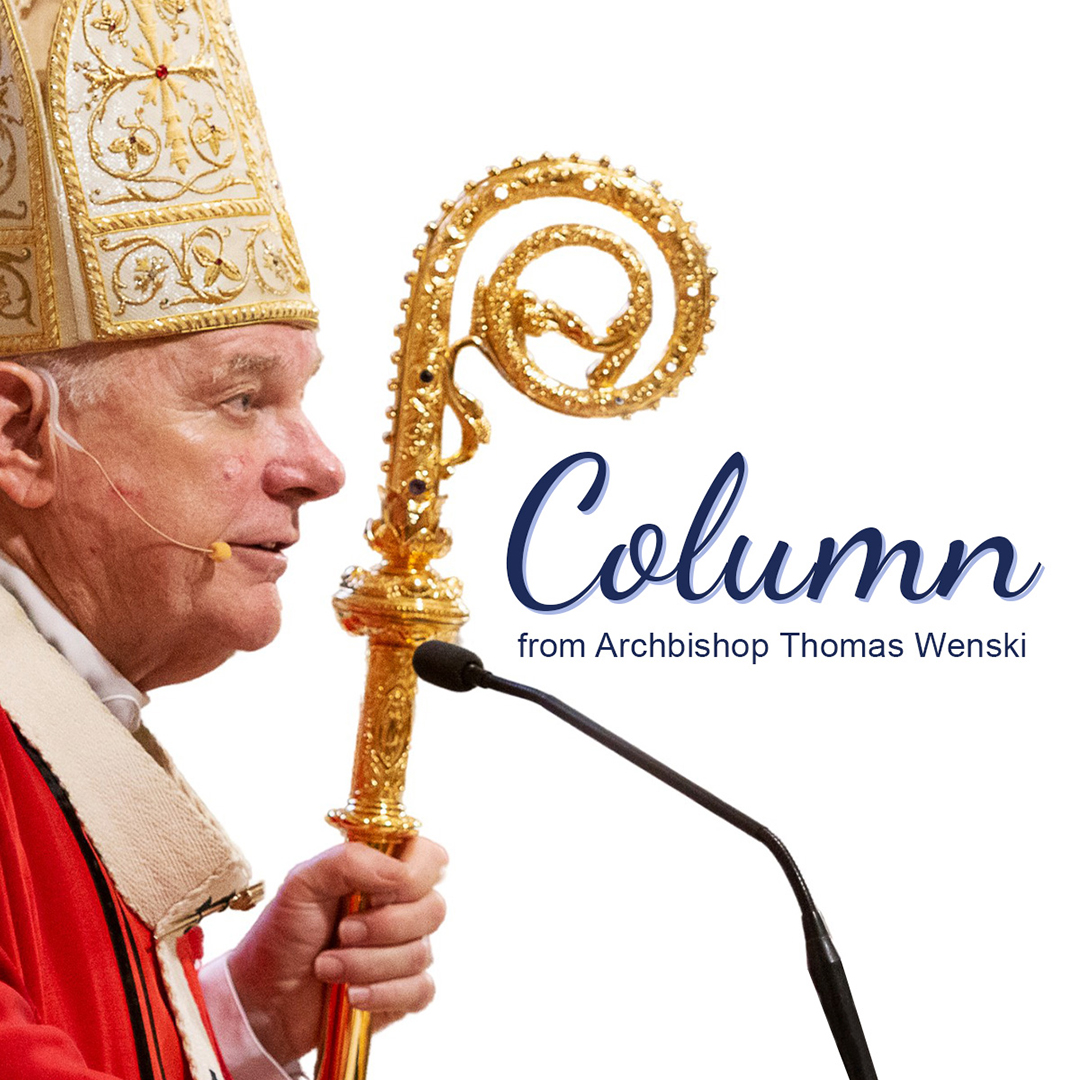By Archbishop Thomas Wenski - The Archdiocese of Miami
I remember years ago when journalist Ted Koppel, of famed ABC’s Nightline, addressed the graduating class of an Ivy League university. Ignoring the conventions of political correctness, he reminded the soon-to-be alumni that the Ten Commandments were just that—commandments, not merely ten suggestions.
The Ten Commandments may soon be returning to public school classrooms across the United States. In Stone v. Graham (1980), following precedent set by the Burger Court in Lemon v. Kurtzman (1971), the Supreme Court held that posting the Ten Commandments in a public school was an unacceptable breach of the separation of church and state.
However, given the current administration’s anti-“woke” campaign and its support for expanding religious expression in public schools (including prayer), several states—among them Texas, Louisiana, and Arkansas—are advancing legislation requiring that the Ten Commandments be displayed once again in classrooms. Proponents of such legislation are hopeful that, with a more conservative Court, they can regain ground lost to secularists in recent culture wars.
Secularists and others opposed to any hint of religion in the public square might argue that displaying the Ten Commandments amounts to imposing a religious viewpoint on schoolchildren. Yet it is important to note that, while the Commandments are certainly foundational to our Judeo-Christian heritage, they are also universally applicable—for they express the moral law written on the human heart. As Koppel reminded those graduates of a prestigious university, the human project is not to determine what I feel or think is right and wrong, but to live in conformity with objective moral norms.
It is at this intersection that the crisis of our age is playing out. Are the rules of life negotiable, so that each generation or culture is free to “construct” its own truth? Are we self-creators, or creatures? Or is there something—or rather, Someone—beyond us to whom we are accountable? As creatures, does not our flourishing depend on living within the design implied by our very createdness? Can we really “have it our way,” as a hamburger jingle claims?
There is a natural law, knowable to human reason and inscribed on the human heart. Even without the aid of divine revelation, we cannot fail to recognize that there is right and wrong. In other words, we cannot not know that stealing, killing, lying, or adultery are wrong.
Of course, sin clouds human reason and weakens the will. The moral life requires learning to say no to envy, anger, lust, and the like—for in surrendering to these passions, we inevitably transgress the commandments that forbid stealing, killing, or adultery. And since our fallen nature prevents us from saving ourselves, we need God’s grace if our lives are to conform fully to the moral law.
Yes, the Commandments are not mere suggestions. But they are more than prohibitions that limit human freedom.
Too often today, freedom is defined as doing whatever I want, whatever I feel like. We think of freedom as the ability to invent our own rules for life. Our culture speaks of the “freedom to choose,” as if that should always override the limits of biology or the demands of others. Human autonomy is exalted as an absolute value, echoing the Non Serviam of the fallen angels.
Yet the Commandments, far from limiting human freedom, really make freedom possible. The “G.O.A.T.s” (Greatest of All Time) in the sports world achieved what they did not by inventing the rules of the game as they went along. Talent is not stifled—but freed—through the discipline and self-control required to follow the rules.
Thus, more than a list of “no’s,” the Commandments are also a resounding “yes” to human freedom and flourishing. We can only truly flourish as human beings, and we can only be truly free “to be all we can be,” when we acknowledge that we are not the arbiters of the rules of life. To be fully human is to recognize that the moral norms written on our hearts are not suggestions, but commandments.

